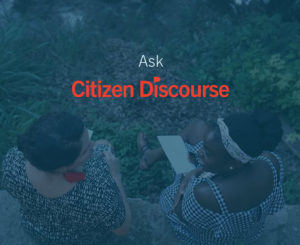The group of 2L and 3L students huddled around a long conference table, leaning in so as not to miss a word. These students are enrolled in the Access to Justice Project Management class I co-instruct with Victor Quintanilla at Indiana University Maurer School of Law. The person they are eager to hear from is Calvin, who is a clemency client of mine. He’s been incarcerated at the Greensville Correctional Facility in Jarratt, Virginia since he was 18 years old. Calvin is 38. Right now, Calvin is looking at another forty years of his life locked away.
“Based on your personal experience with the justice system, what advice do you have for law students hoping to contribute to a more just legal system?”
In his slow and deliberate cadence, Calvin responded, “Every person has a story. Take the time to listen.”
**
Unlike breathing, which we do unconsciously, to really listen with the objective to understand the other person requires intention. Otherwise, it’s just hearing. In class, we center the practice of active listening: from mirroring and reflective listening to empathic listening and humble inquiry. We think about scenarios where, as lawyers, these different listening approaches are effective tactics.
Let me back up and introduce myself since I’m new to this space. My name is Karen Gross. I am a practicing attorney, a consultant, a facilitator and instructor, and a social justice advocate. Out of a concern for the state of our democracy and a growing interest in restorative practices, I started an organization whose mission is its name: Citizen Discourse. Citizen Discourse gatherings make space for participants to develop more effective communication, self-awareness, and other valuable human skills. The crux of the Citizen Discourse approach involves a human-centered scaffolding for conversations, coupled with a social contract that defines relationships, sets norms, and builds buy-in. Together, these elements help foster psychological safety which lay the foundation for authentic interactions seeded in trust.
I work with law schools supporting and encouraging law students to think about their professional identities, their values, and the emotional intelligence skills it takes to align actions with values. With the newly revised ABA Standard 303, I hope to share this approach and resources with schools looking for a more holistic strategy for embedding professional identity formation.
**
Last week I reached out to the student who asked Calvin for his advice to see what she thought of his answer. She responded with:
“I came to law school with aspirations of ‘changing the world,’ and expected law school to teach me how to do that — and I know many colleagues who share that sentiment. Calvin’s advice reminded me that some of the most valuable elements of my practice will be traits that I do not learn in the traditional doctrinal law classrooms. Even if I have all the doctrinal knowledge and ability to ‘think like a lawyer,’ my clients will be looking to talk to a human – not a robot – who can see, appreciate, and value their humanity.”
I believe this sentiment captures the essence of what the work of professional identity formation and Citizen Discourse are all about: helping our students both think like a lawyer and act like a human.
Over the next few posts, I will share the theories and thought leaders that inform the Citizen Discourse approach to culture change. I hope this invites an exchange of ideas and a conversation. To that end, Citizen Discourse offers monthly restorative conversations on the first Tuesday of every month for higher education professionals working in this space. Over the course of a one-hour session, we get mindful, discuss trends and challenges, and build rapport. Come join us if you are curious to experience a Citizen Discourse style conversation.
Citizen Discourse featured on the Holloran Center Professional Identity Implementation Blog
By: Karen Gross, Founder & CEO of Citizen Discourse



